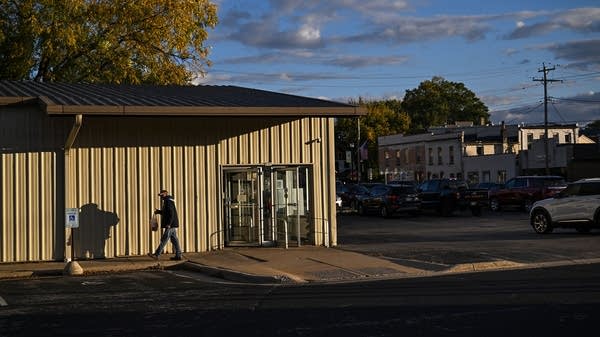After George Floyd's murder, companies made big promises to HBCUs. Have they kept up?
The pledges corporations made in 2020 to do more to support Black communities included a flood of pledges to and new investments in Historically Black Colleges and Universities.

After the murder of George Floyd in 2020 and the Black Lives Matter protests that followed, many corporations pledged to do more to support Black communities, including a flood of pledges and new investments in HBCUs — Historically Black Colleges and Universities.
“We were able to see a lot of folks making commitments to racial justice and also being educated about the underfunding of HBCUs,” said Denise Smith, a senior fellow at the Century foundation. “And at that time, we saw this really big surge in donations to HBCUs.”
But it’s tough to get a firm number for just how much was promised to HBCUs in total, according to Marybeth Gasman, a professor at Rutgers, where she also directs the Center for Minority Serving Institutions.
The grants and commitments were often announced on press releases, bundled together with other investments, and attempts to track the numbers over time have wound down. But it’s undeniable the influx of resources had an impact.
“I think the most substantial gifts were by philanthropist MacKenzie Scott, not giving as a corporation or foundation, but giving as an individual,” said Gasman. Scott reportedly gave more than $500 million in no strings attached grants to at least 23 HBCUs.
But corporations made smaller pledges as well. For example, Morgan Stanley started up its HBCU Scholars program, committing to spend about $12 million to offer full scholarships to five students a year at three HBCUs — Howard University, Morehouse College and Spelman College.
“So we had, all in, 58 students in the program, 13 graduated this year. We're very proud of that,” said Susan Reid, the company’s global head of talent. “A number of them interned with the firm, and two of the students from this graduating class will be joining Morgan Stanley as full time employees later this summer.”
Even companies that are pulling back on racial justice commitments in other areas to avoid the White House’s ire, seem to still feel safe giving to HBCUs.
“One that I'm particularly interested in is Target,” said Rutgers’ Marybeth Gasman. “Because they promised a $100 million commitment to racial justice organizations and HBCUs were part of that.”
In 2021, Target partnered with the United Negro College Fund to grant $5,000 scholarships to one thousand Black students at HBCUs. And the company gave those “Target Scholars” additional funding as their studies progressed.
The program disappeared from the UNCF website for a while, as Target publicly began to roll back some of its DEI commitments. But the program, in a different format, recently resurfaced, with applications open for a new round this year.
UNCF declined an interview for this story, and Target didn’t respond to multiple requests for interviews.
Even though the post-George Floyd corporate commitments have made an impact for some students and schools, Denise Smith at the Century Foundation points out that the initial flood of money has tapered off.
“Unfortunately, What we are still seeing is that HBCUs have failed to maintain pace with non-HBCU institutions’ donations,” she said. “Ivy League institutions, for example, receive 178 times more money in donations than HBCUs receive. So there's a lot of work to be done, and the current political climate does not help with this either.”
Smith said, especially with funding cuts to the Department of Education and programs that support these institutions, it will take much more long-term investment for them to thrive.













